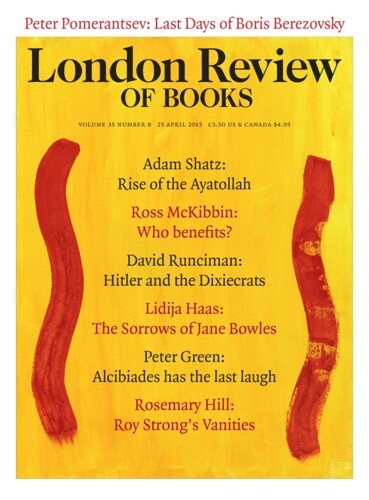Diary: Berezovsky’s Last Days
Peter Pomerantsev, 25 April 2013
Two men who defined post-Soviet Russia died within eight days of each other last month, both suddenly and far from home. On 16 March the body of Vladislav Mamyshev was found floating in a swimming pool in Bali. His death was blamed on a heart attack. He was 43. Better known as Vladik Monroe, Mamyshev was a pioneer of performance art in Russia, his status that of a sort of post-Soviet Warhol crossed with RuPaul. In the late 1980s he had hung out with the art group Pop Mechanika.


